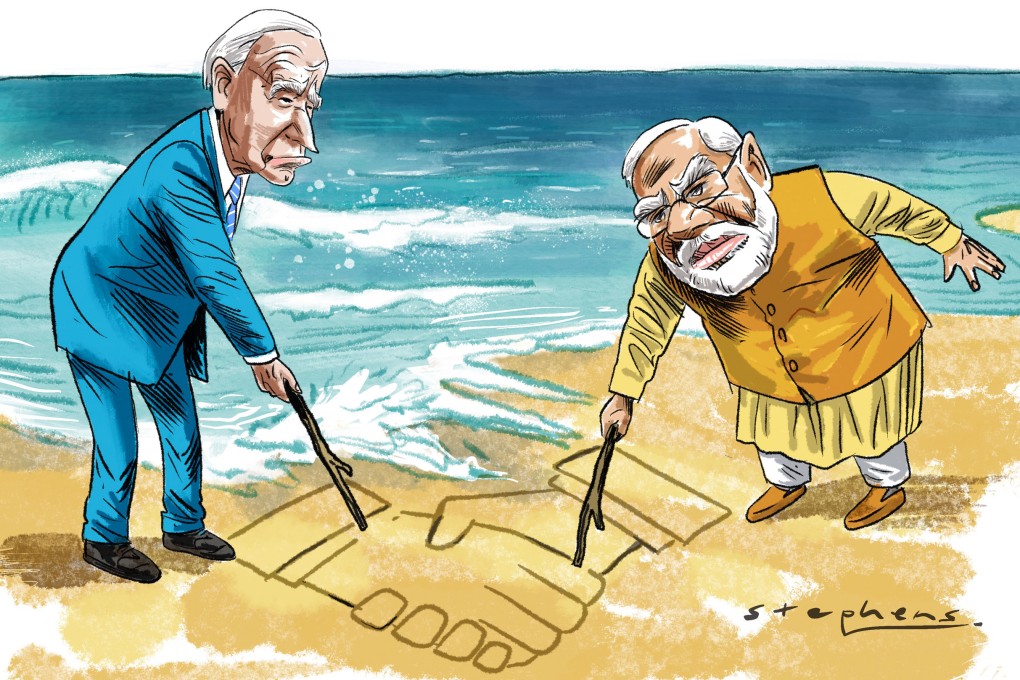Advertisement
Opinion | Modi’s much-hyped US visit has shifted no sand in the Indo-Pacific alliance
- India’s policy of strategic autonomy raises questions about whether it will enter into a formal alliance with the US, continue engaging with China or uphold long-standing ties with Russia
- Also, the reality of geoeconomics looms large, with India reliant on Russian arms, and US trade with China hitting a record high last year
Reading Time:4 minutes
Why you can trust SCMP
7

Many see Indian Prime Minister Narendra Modi’s visit to the United States as significant amid global economic and geopolitical headwinds. Once denied a US visa over human rights concerns, Modi is now viewed by Washington as a critical partner, and India as a counterforce against China’s rising assertiveness in the Indo-Pacific.
Advertisement
Over the visit, India and the United States concluded discussions on a wide range of issues from defence and emerging technology to collaboration on space exploration. The accords recognise India’s role as an important US partner and support the strengthening of India’s influence in the Indo-Pacific.
But while Washington has long seen India as a strategic partner to offset China’s regional aspirations, New Delhi has never been totally at ease with the label. Yet, without India’s full engagement, the US’ Indo-Pacific policy, the Quadrilateral Security Dialogue or any other grouping of nations hoping to check China would be nothing more than a talking point.
Given the impossibility of coercing China into demilitarising the South China Sea, the US has intensified its safeguarding of the freedom of navigation in two crucial maritime areas: the Western Pacific and the Indian Ocean. This elucidates the US characterisation of India as a genuine strategic partner.
The US has long urged India to assume its responsibilities as the Indian Ocean’s maritime and naval centre. But in addition to the US and China, Russia has emerged as a noteworthy if discreet contributor to the Indo-Pacific.
Advertisement
In aspiring towards a military presence in the Pacific, Russia has positioned itself as a provider of weapons and energy to smaller nations in the Indo-Pacific, including Vietnam, Indonesia and the Philippines. These countries, concerned about being entangled in the US-China rivalry, seek alternatives. Russia is also India’s primary arms supplier, which means the Indian armed forces are dependent on Moscow for military equipment spare parts.

Advertisement
